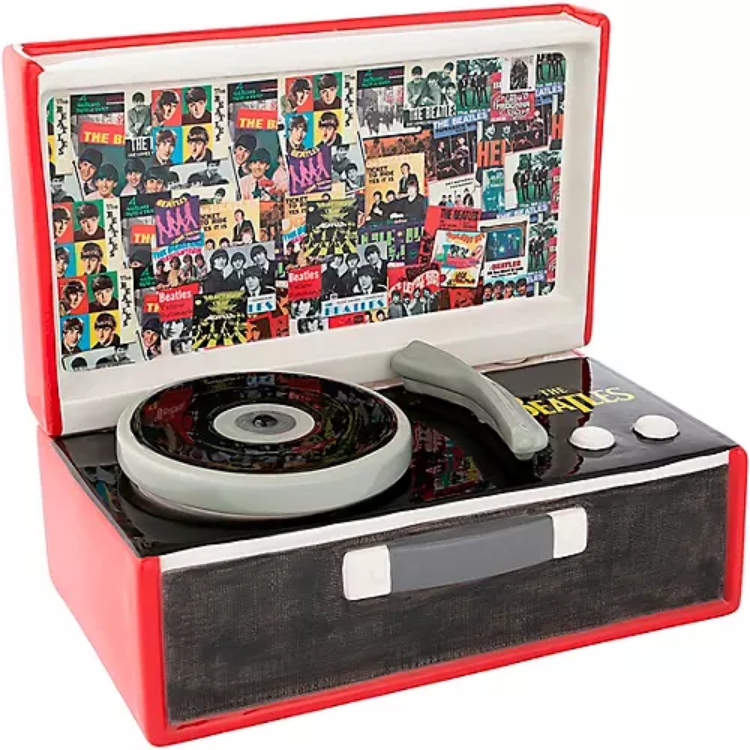John Lennon still filming "How I Won" The War in various locations in Carboneras, Spain.
- Register
- Log in to Tune-In
- Wishlist (0)
-
Shopping cart
(0)
You have no items in your shopping cart.
Beatles A Day in the Life Blog posts of '1966' 'October'
The Beatles were probably just doing their own thing.....
John Lennon celebrates his 26th birthday in Spain
John Lennon and Cynthia spent much of September and October 1966 in Almería, Spain, where he acted in Richard Lester's film How I Won The War.
The couple settled in a villa named Santa Isabel, where they were joined by Ringo Starr and his wife Maureen Starkey. Also staying at the villa were actor Michael Crawford, his wife Gabrielle, their baby and its nanny.
On this day Lennon celebrated his 26th birthday. Close to a beach named El Zapillo was a restaurant, El Manzanilla. It was here that Lennon and his friends celebrated his birthday.
Cynthia, Maureen & Ringo watch as John films scenes of ''How I Won the War''
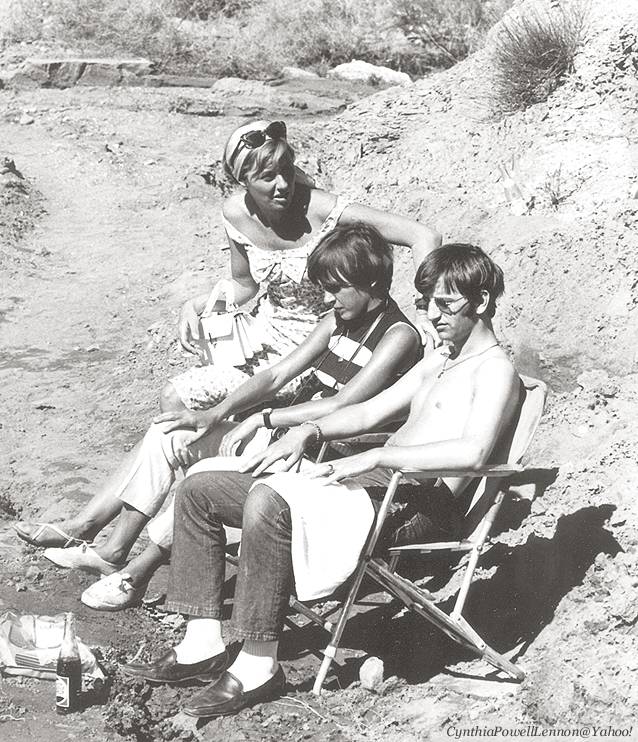
On the evening of Saturday, October 8, 1966, John Lennon celebrated his 26th birthday in an apartment in Almeria, Spain. Officially, he was 26 on Sunday, October 9th, but the party took place the night before because John was about to move to a new location. At the time, we had been in Spain just over three weeks for location work on the Richard Lester movie, How I Won The War, in which John plays the part of Corporal Gripweed—a faithful, slovenly and slightly cowardly servant/“batman” of Lieutenant Goodbody (Michael Crawford) of the British Army.
The entire production unit for the movie got an open initiation to the birthday shindig and, believe me, it was quite a wild night! Almeria is a pretty remote spot—minus most forms of conventional night life, so that party was one of the few really successful social occasions of the month.
John and Cyn had become very friendly with Michael Crawford and his wife, who were renting an apartment nearby. Already the Crawfords were finding themselves a bit cramped, because they had their lovely little six-months-old baby with them and a nanny. And Ringo had arrived with Maureen for a holiday three days before the birthday party!
“You know what we ought to do?” John suggested one evening, just after we’d heard that Ringo and Maureen were coming to Spain. “We should all get together and rent one of those fantastic old villas outside the town.”
The Crawfords loved the idea and the move was organized without delay. The apartments were very attractive and comfortable—with a wonderful view looking out over the sea. But everyone wanted more space to move around in and larger “get-together” rooms for entertaining. So, on the Sunday of John’s birthday, we moved into the Villa Corjo-Romera, a magnificent, rambling old Spanish villa standing on a hill outside the town.
“It’ll take days just to explore this place,” John declared, as we walked from room to room on the initial tour of the villa. We admired all the heavy woodwork, the superbly decorated ceilings and the majestic main hall.
“Just like something out of a film,” Ringo decided. “You expect all kinds of heroes with swords to come swinging ’round the corner on a chandelier! And what a great place for parties!”
“That’s it,” replied John. “A party! It’s my birthday. We should have one.”
“We did that last night,” I put in weakly.
“Well we’ll do it again tonight,” John said. “It can be called a villa warming if you like.”
“Hey you’ve got a game room,” Ringo said. Let’s have a go at table tennis later.”
That night’s “villa warming” party coincided with one of the worst storms Almeria had ever experienced in living memory. Normally, the locals expected no more than about five days of rain each year. This storm took everybody by surprise. The rain was torrential and it was accompanied by a fierce wind. The party was just getting underway when the all the lights went out, so we rushed ’round trying to find where the fuses were located. We needn’t have bothered. The electricity supply cables for the entire area had been damaged by the storm. And the telephone lines were down, too. Finally, we found enough candles to light the place. In the end, the candlelight added to definitely romantic atmosphere to the party, and the power cut had turned out to be a novel advantage rather than a disaster.
It goes without saying that there was no film work done on Monday. The location set had been washed away by the rain. (After all, this was the desert sequence—and floods just don’t happen in deserts!) The water supply for the villa came from a well, but the pump was worked buy electricity. It wasn’t until late Tuesday afternoon that electric power was restored. So we spent Monday devising ways of eating and existing comfortably without the use of water or electricity.
The restoration of the power coincided with the arrival of our cook. So at about three o’clock Tuesday afternoon we all sat down to a late breakfast of sausages and eggs.
“This, I am really looking forward to,” said John, and the girls put on a look of mock annoyance. “Not that I’m saying a word against your cooking, but even you two can’t work wonders without water.”
John and I had left for Germany to begin work on How I Won The War less than a week after the Beatles’ American tour. By now it must be a matter of well-known historical fact that John’s ceremonial haircutting took place at the unearthly hour of 7:30 a.m. on the morning of Tuesday, September 6, 1966! The “operation” was supervised by the film’s producer/director, Richard Lester, and carried out by 28-year-old German hairdresser Klaus Baruch, of Hamburg. He came to our small vacation-type hotel in the forest of Luneberg Heath to perform his grave task. John’s familiar fringe was swept back and greased down a bit to transform him into Corporal Gripweed. The addition of the grubby old army greatcoat plus a pair of very plain specs completed the change from Beatle to “batman.”
Don’t believe any claims people might make about possessing some of John’s clipped off hair. I watched the famous locks of hair burning away to nothing while we were at Luneberg!
We got one completely free day in Germany and John took the opportunity of re-visiting some of his favorite haunts in Hamburg. We couldn’t make the rounds of the Hamburg club scene because we had to be up so early the following morning. Instead, John went on a shopping spree and picked up an assortment of shirts, shoes, jeans and other accessories from stores he knew well from the Beatles’ days in Hamburg five and six years ago. It was a fascinating day for John since many of the places familiar to him had greatly changed since 1960.
We finished filming in Germany on Wednesday, September 14. By coincidence, that was the day that a “Mr. And Mrs. Sam Wells” flew from London Airport on a BOAC plane bound for Bombay. At Bombay’s Taj Mahal Hotel, it wasn’t long before Mr. And Mrs. Wells were recognized, and Mr. Wells, alias George Harrison, let himself be pressured into admitting his true identity and explaining to the local press his motives for that extended Indian vacation trip: to study the sitar and everything to do with Asian music.
Meanwhile, back at How I Won The War, John and I left Hamburg by the night train to Paris in the small hours of Friday, September 16th. And at the same time (or a few hours later), Brian Epstein left London for Paris accompanied by Paul McCartney. We all met in Paris—just for the weekend, because filming in Spain was due to start early the following week. The flight from Paris to the Spain was fast—and the longest and most tedious part of our journey was yet to come. From the airport at Malaga, we faced a five hour drive to Almeria, which is, as I said earlier, a bit of remote spot. We drove along what the Spanish fondly imagine are highways but are, in fact, more like dirt tracks with superficial tarmac coating. For most of the way, the “road” runs alongside the sea—I mean alongside, because I reckoned we would plunge straight down into the waves at any second.
The living in Spain was a bit rough, but nobody minded. By now, most of the cast had become firm friends. Although John and I had made a particular mate of John Crawford, we were equally close with all the other actors. Like Ronald Lacy, who is Spool in the picture; Lee Montague, who is Transom (“Corporal of Musket and Troop Sergeant”); Roy Kinnear, who is Clapper; and Michael Hordern, who plays out Lt. Col. Grapple. Each morning we would be up by 7:30 to leave no later than 8 a.m. John had his own driver and Rolls with him. The Almeria inhabitants were thoroughly impressed with this vehicle, and John caused a great stir each day as we drove out of the town. The local people described the Rolls as the “Royal Hearse.”
Once we’d left the town each morning, that was it for the whole day. At the actual film location, we spent most of our spare time watching what was happening or sitting around on the floor of an old bus (no seats) which was used as the company wardrobe and the cast’s the dressing room. Between 8:30 a.m. and 9, John went through the makeup process of becoming Corporal Gripweed, and the next four hours were spent in front of the cameras. The lunch break was from twelve to one. We were well looked after, despite the lack of facilities on the location. We all sat ’round in a big and very hot tent eating excellent lunches, with things like melon, filet steak and and fruit.
Most of our evenings were spent quietly. Sometimes, John would go through his lines for the following day, with me correcting him and filling in all the other parts. Just for laughs, we would rewrite whole scenes for ourselves, which got a bit confusing. So sooner or later, we’d call each other to order and get back to the script-learning bit. I’m not sure exactly where Corporal Gripweed was born and raised, but John has given him a definitely Liverpool origin.
When Ringo and Maureen joined us at Almeria on Wednesday, October 5th, only one of the boys remained in England. That was Paul, who was still in the process of putting the final interior furnishing touches to his new house at St. John’s Wood in North London. In any case, he wasn’t ready to take an overseas vacation at that stage, because he had started work on the soundtrack musical score for the Hayley Mills’ film, All In Good Time.
So, by the final week of October, the all-around situation on the Beatle-front was this: George, with yoga experience, sitar lessons and a mustache, was located in a picturesque house beside a lake not too far from Bombay, India; Paul was in London, watching different bits of the Boulting Brothers’ film and writing the background music for each scene; and Ringo was taking it easy in Spain and watching John working on the final segments of How I Won The War. Now there was an interesting dispersal of talents and occupations, if there ever was one!
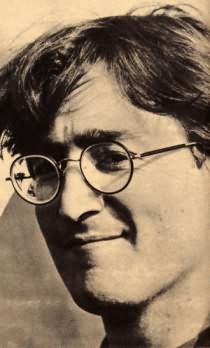
Nothing much happening today - that we know of.
The Beatles doing their own thing...............
George Harrison Interview: Beatles Book Monthly, October 1966
Beatles Book Monthly featured an exclusive chat with George Harrison in it's October 1966 issue. Topics of discussion included songwriting and recording with the Beatles, London and Liverpool, as well as the group's pre-fame Hamburg days.
First published in 1963 and continuing throughout their career and beyond, The Beatles Book Monthly was the official fanzine of the group. It took full advantage of having access to amazing rare photos, it featured exclusive articles, and contained insights not found anywhere else.
Sometimes also listed as Beatles Monthly Book, previously-owned copies of these excellent magazines continue to circulate in collector's circles, including online sites such as Ebay. While this UK-based fanzine had a rebirth in the late 70's and 80's, the most intriguing issues come from the years when the band was together.
Here is the interview:
I found him sitting cross-legged on the couch wearing a white towelling robe with a hood pulled over his head, listening to some weird and wonderful sounds coming out of his battered tape recorder, and looking as though he should be charming a snake out of a basket in the Casbah, instead of sitting in a dressing room.
Not wanting to look conspicuous by sitting on something way-out like a chair, I sat on the floor. A drink was promptly placed in my hand and I asked George whether he was more confident in his songwriting.
"Naturally. You get more confident as you progress. In the old days, I used to say to myself, 'I'm sure I can write,' but it was difficult because of John and Paul. Their standard of writing has bettered over the years, so it was very hard for me to come straight to the top - on par with them, instead of building up like they did."
Did you go to John and Paul for advice, I asked.
"They gave me an awful lot of encouragement. Their reaction has been very good. If it hadn't I think I would have crawled away. Now I know what it's all about, my songs have come more into perspective. All of them are very simple, but simplicity to me may be very complex to others."
"I've thrown away about thirty songs. They may have been alright if I'd worked on them, but I didn't think they were strong enough."
"My main trouble is in the lyrics. I can't seem to write down what I want to say - It doesn't come over literally, so I compromise, usually far too much I suppose. I find that everything makes a song, not just the melody as so many people seem to think, but the words, the technique - the lot."
I asked George whether he put his ideas forward when recording one of John and Paul's songs.
"I think they welcome my ideas. We all put a lot of suggestions in after we've recorded something. That's why we take so long to record a number. We've always cooperated with one another. Paul might come into the studio and say to me 'Do this' if he has worked out the chords beforehand, but they always need changing."
I then inquired whether or not he misses the freedom of the streets.
"Sometimes I do, especially around Christmas. If I want to look for something in a store, then I miss browsing around, but I sometimes walk down Bond Street."
How do people react if they see you in the streets?
"I've never run into a mob. Anyway, I don't think they realize it's me. I think they think we're just a myth they see on the television and listen to on the radio."
George got out of his Buddha-like position, only to replenish our glasses and change the tape over to the other side. With George back on the couch cross-legged, and still with Indian sounds, I asked him if the Beatles were night creatures by choice.
"Six years ago we left Liverpool to go to Germany, and our job was to entertain people at night. It's just the same for a night watchman. We've become night creatures because we chose to entertain people. If we would have chosen another vocation like a bank clerk or something like that, then I suppose we would have been day creatures."
I asked George whether he was still mystified by London as he was four years ago, or whether he regards it as home and not Liverpool.
"I feel part of London. It's where I live. I get a funny feeling when I go back to Liverpool. I feel sad, because the people there are living in a circle - they're missing so much. I'd like them to know about everything - everything that I've learned by getting out of the rut."
I then asked George what was the most outrageous thing that he's ever done.
"Just Hamburg in the old days. The whole thing was one big joke. We were worked to death. We couldn't do anything. I think the funniest thing was one night in the Star Club, as you all know, John came on stage with a lavatory seat around his neck, but what no one's mentioned is that he was only wearing his undies at the time!!!"
Incidentally, John, Paul and Ringo were also in the room whilst I was talking to George, but they were occupying themselves in the far corner with various tape recorders. Every now and then there was an outburst of laughter.
I asked George if anybody fascinated him, and he replied: "John, Paul and Ringo, and anyone I like."
After wandering over to the other three, I now know what George meant. Ringo was taping their conversation, and when he played it back, John turned on his tape recorder and taped their comments on Ringo's recording - hence, two lots of conversations going on at once. Then Ringo tried his hand (unsuccessfully) at taking off various dialects. He then finished it off with numerous dog barkings. So the finished recording was - John's previous tape with two conversations plus Ringo's impersonations with guffaws from John, Paul and George - Quite effective to say the least.
"See what I mean," said George. "They're fascinating."
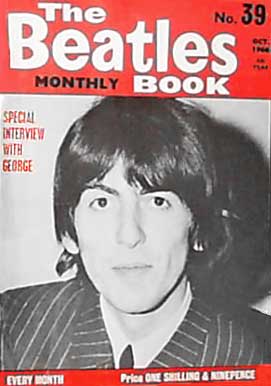
Brian Epstein denies The Beatles’ split
Despite having been hospitalized the previous month after overdosing on prescription medicine, The Beatles' manager Brian Epstein was forced to emerge from his recuperation clinic on this day to deny reports that Paul McCartney was leaving the group.
The latter part of 1966 saw much press speculation that The Beatles were splitting up, in the wake of their disastrous visit to the Philippines and a troubled US tour. Each of the four members pursued outside interests after their final concert, with John Lennon filming How I Won The War in Germany and Spain, George Harrison visiting India, and McCartney and Ringo Starr busying themselves in England.
Epstein took the opportunity to reveal that Lennon was appearing as Private Gripweed in Richard Lester's film, and that McCartney was composing the music for another movie entitled Wedlocked, Or All In Good Time.
On 16 October United Artists announced that the film was to be retitled All In Good Time, and that Lennon and McCartney would be writing the soundtrack together. It was eventually released as The Family Way, and Lennon had no involvement in the music.
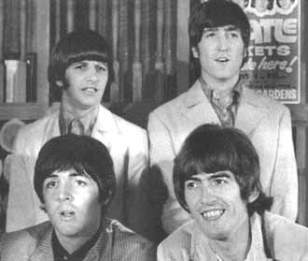
The Beatles all doing their own thing.
- 1962
- 1963
- 1964
- 1965
- 1966
- 1967
- 1968
- 1969
- 1970

